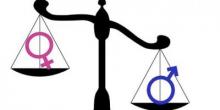Global Audiences for IDLO Access to Justice Work


To reform laws is to reform societies. At IDLO, this is something that we have had thirty years to learn. And there are no more important laws than fundamental laws – national Constitutions. One of greatest, the Constitution of the United States of America, has served that nation well for nearly a quarter of a millennium. Constitutions encapsulate a vision. In countries struggling to overcome trauma, as is the case of Kenya; struggling to be reborn, as in Somalia; or struggling to be born at all, as in South Sudan, Constitutions respond to a collective need for unity and renewal.
But Constitutions are also highly technical documents. They set the parameters for law and justice in a given jurisdiction. For this reason, they require legal resources and expertise unavailable in many developing nations. By providing those resources and expertise, IDLO is proud to have assisted several countries through complex constitutional processes.

Languages: English, Español

Milan Expo 2015 is all about food, and while many visitors are there to consume it (waiting lines for some of the national pavilions are counted in hours), many are also there to talk about it in legal and policy terms: the debating space at the Angolan

Languages: English, Pусский
by Fred Huston, IDLO Country Director
"Experience shows that there can be no gender equality unless women can access justice and dispense justice," IDLO Director of External Relations Judit Arenas has said at the launch of the GQUAL campaign for gender parity in international bodies.

A herd of cows belonging to Bakyt Azizov has trampled over land belonging to Aybek Isaev. As a result, Mr. Isaev’s future oats harvest has been partly compromised. Mr. Isaev is now claiming from Mr. Azizov 85,600 Kyrgyzstani som (US$ 1,340) in compensation, divided as follows: direct damage – 7,100 som; profit lost – 48,500 som; moral damages – 25,000 som; and lawyer’s fees – 5,000 som.
Civil society in Ukraine is well organized and able to exert considerable influence, especially since the Maidan Revolution. It is widely agreed that targeted support for civil society organizations (CSOs) can amplify the success of reforms that strengthen the rule of law and eliminate corruption. With this is mind, we are working to empower CSOs to monitor and engage with the current reform processes in public administration, rule of law and justice sectors.
While acknowledging the importance of national reform efforts, our program in Ukraine emphasizes and assists regional reform initiatives. We are helping develop and implement the reform agenda launched in Odessa, in an effort to position the Black Sea region as Ukraine’s de facto anti-corruption capital.
In Ukraine, as in most eastern European states, the role of the Public Prosecutor is oversized in relation to the Judiciary and the rest of the legal community. The institution is historically prone to abuse of power and corruption, and skewed towards protecting the interests of the state over those of society or the individual. Regard for human rights is scant; fair trial standards are rarely applied. As a consequence, public dissatisfaction is rife. However, current political will to change the system has opened up an opportunity for meaningful reform.
“Having a new Constitution is all very fine,” one guest at an IDLO event memorably said, “but fixing Nairobi’s traffic may be more important.”



